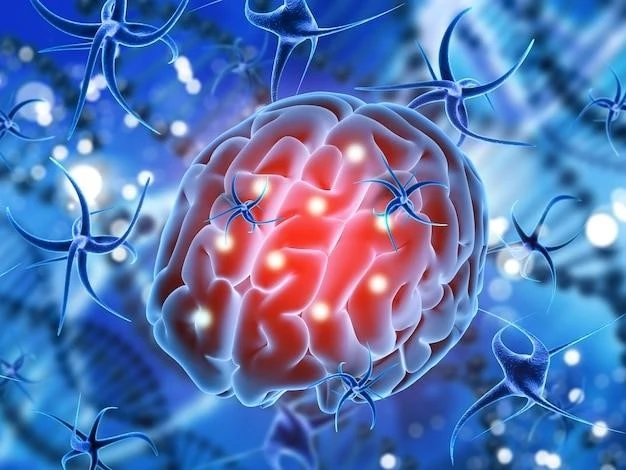Overview of Angioma Hereditary Neurocutaneous
Learn about Angioma Hereditary Neurocutaneous to understand its impact, symptoms, treatment, genetics, management, research, prognosis, and support.
Understanding the Basics of Angioma Hereditary Neurocutaneous
Angioma Hereditary Neurocutaneous is a rare genetic disorder affecting blood vessels in the brain, spinal cord, and skin. It can lead to neurological symptoms and skin abnormalities. Understanding the basics involves grasping how this condition manifests across multiple body systems and the importance of early detection and management. By learning more about Angioma Hereditary Neurocutaneous, individuals can better navigate their healthcare journey and access appropriate support and resources. Stay informed about the genetic, symptomatic, and treatment aspects to empower yourself or a loved one living with this condition.
Symptoms and Diagnosis of Angioma Hereditary Neurocutaneous
Familiarize yourself with common signs of this condition and the diagnostic procedures to seek early detection and appropriate management.
Recognizing Symptoms of Angioma Hereditary Neurocutaneous
Early signs may include seizures, headaches, neurological deficits, and skin abnormalities. Prompt recognition of symptoms is crucial for timely diagnosis and treatment. Be vigilant for any changes in health and consult a healthcare provider if you notice unusual neurological or dermatological manifestations. Keeping a detailed record of symptoms can aid in accurate diagnosis and management planning. Stay proactive in monitoring your health and communicate openly with your medical team to address any concerns promptly.
Diagnostic Procedures for Angioma Hereditary Neurocutaneous
Diagnostic tests may include MRI scans, genetic testing, skin biopsies, and neurological evaluations. These procedures help confirm the presence of vascular abnormalities, genetic mutations, and associated symptoms. Collaborate with medical professionals to undergo thorough evaluations and interpretation of test results. Timely and accurate diagnosis is essential for developing a personalized treatment plan and accessing appropriate care. Ensure open communication with your healthcare team throughout the diagnostic process to address any concerns and optimize management strategies.

Treatment Options for Angioma Hereditary Neurocutaneous
Explore available modalities for managing symptoms and improving quality of life with Angioma Hereditary Neurocutaneous.
Available Treatment Modalities
Treatments for Angioma Hereditary Neurocutaneous focus on symptom management, seizure control, and monitoring of vascular lesions. Options may include medications, surgery, and periodic imaging studies. Collaborate closely with healthcare providers to personalize a treatment plan that addresses your specific needs and enhances your overall well-being. Embrace a proactive approach to treatment and adhere to recommended strategies to optimize outcomes and quality of life while living with this condition.
Genetic Causes of Angioma Hereditary Neurocutaneous
Understand the genetic basis underlying Angioma Hereditary Neurocutaneous to comprehend its inherited nature and impact on health.
Understanding the Genetic Basis
Angioma Hereditary Neurocutaneous is linked to specific genetic mutations affecting blood vessel formation. It is paramount to grasp these genetic alterations to comprehend disease development and inheritance patterns. By understanding the genetic basis, individuals and families can make informed decisions, seek appropriate genetic counseling, and potentially participate in research studies. Stay informed about the genetic factors contributing to this condition to empower yourself in managing Angioma Hereditary Neurocutaneous effectively and engaging in discussions with healthcare professionals regarding your care.
Management Strategies for Angioma Hereditary Neurocutaneous
Implement effective lifestyle modifications and preventive measures to optimize your health and well-being with this condition.
Lifestyle Modifications and Preventive Measures
Adopting a healthy lifestyle with regular exercise, balanced nutrition, and stress management can support overall well-being. Additionally, avoiding activities that may increase the risk of complications related to Angioma Hereditary Neurocutaneous is important. Consult with healthcare professionals to create personalized lifestyle strategies. Stay proactive in your health management by integrating preventive measures, such as regular medical check-ups and adhering to recommended guidelines. Empower yourself with knowledge and take charge of your health to enhance quality of life while living with this condition.
Research Advances in Angioma Hereditary Neurocutaneous
Stay informed about the latest developments and promising research areas to support ongoing progress in understanding and managing this condition.
Recent Developments and Promising Research Areas
Advancements in genetic studies, imaging techniques, and targeted therapies offer hope for improved understanding and treatment of Angioma Hereditary Neurocutaneous. Emerging research focuses on identifying new therapeutic targets and enhancing diagnostic accuracy. Stay engaged with scientific developments and clinical trials to potentially benefit from innovative approaches. By staying informed about recent discoveries and promising research areas, individuals impacted by this condition can actively contribute to and benefit from cutting-edge advancements in Angioma Hereditary Neurocutaneous management.
Prognosis and Complications of Angioma Hereditary Neurocutaneous
Evaluate potential outcomes and complications of the condition to better understand its long-term impact and management requirements.
Evaluating Prognosis and Addressing Potential Complications
Understanding the prognosis and potential complications associated with Angioma Hereditary Neurocutaneous is crucial for informed decision-making and proactive management. Regular monitoring, adherence to treatment plans, and open communication with healthcare providers are essential in mitigating risks and optimizing outcomes. By evaluating prognosis and addressing potential complications promptly, individuals can take proactive steps towards maintaining quality of life and implementing preventive measures. Stay vigilant, seek appropriate support, and engage in a collaborative approach to managing Angioma Hereditary Neurocutaneous effectively.
Support and Resources for Individuals with Angioma Hereditary Neurocutaneous
Access valuable support networks and informational resources to help navigate the challenges of living with Angioma Hereditary Neurocutaneous.
Accessing Support Networks and Informational Resources
Connect with patient advocacy groups, online forums, and healthcare professionals to access support and accurate information about Angioma Hereditary Neurocutaneous. These networks can provide emotional support, practical advice, and reliable resources for individuals and families navigating this condition. Stay informed about educational materials, research updates, and community events to stay engaged and empowered. By leveraging support networks and informational resources, you can enhance your understanding of Angioma Hereditary Neurocutaneous and build a strong support system to navigate the journey effectively.
